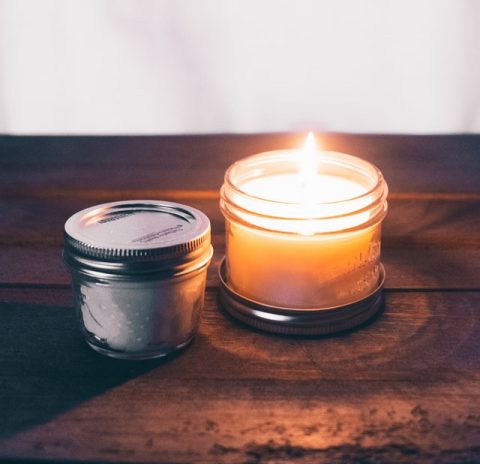
It’s just after 8:00 am. The kids have left for school, and you finally have the house for yourself. You pour yourself a second cup of coffee and open your laptop. Just as you’re about to click on your work-in-progress, the phone rings. Or a text pings. Or an email alert flickers from the corner of your screen. Maybe a neighbor stops by to chat, or the dog looks up at you with big puppy eyes begging, “Walk now?” And suddenly you’re sliding down that slippery slope into full-blown procrastination mode. You’ll write later, you promise yourself…
And then you don’t.
If you’re like me, this scenario is unfortunately all too common. I’m desperately in need of discipline. So when my friend, Ellen Sussman, an award-winning adult author, told me about a method she uses called the unit system, I was intrigued. While her technique (detailed below) didn’t turn out to be the panacea I’d hoped for, experimenting with the novelty of a new routine did motivate me to research the work habits of other authors I admire. Why reinvent the wheel every time I sit down to write, if I can benefit from the innovative ways others have solved the discipline dilemma? So I turned to some of the best minds I know in the business—my VCFA critique group—to interview them about their writerly habits. How do you trick your brain into concentrating, I asked? What kind of routines and rituals work for you? While I found no single winning formula, there was consensus in the collective wisdom on a few common themes—like the importance of routine.
The Unit System: Based on research done by Dorothy Duff Brown, who studied how to help graduate students structure their time while writing theses, this system helps writers break down long blocks of time into manageable segments.

“[You] divide your work time into units,” explains Sussman. “Each unit is one hour of time. For the first forty-five minutes of that hour, you write. Then no matter where you are at the forty-five minute mark, you get up from your desk and do something that lets you think about the work but doesn’t allow you to do the work.” This might include tasks like watering the plants, throwing a ball for the dog, putting in a load of laundry, or chopping up vegetables for dinner—but no emails, texts or “thinking work.”
The theory is, people have an easier time of focusing if they know they have to do it for only 45 minutes. “Anyone can withstand a short bout of suffering—and there’s the reward of a fifteen-minute break on the other end,” says Sussman. “The break is truly a time to go deeper in a very different way. [During that time] I’m not conscious of thinking about the novel. But the minute I get back to my desk for unit two, I’m suddenly brimming with new ideas. Something happens when you let your mind breathe for a moment.”
Routine: The consensus is that routine is essential. “Novelists especially need to write daily,” Sussman stresses. “It takes a lot to hold a novel in one’s head. Novels don’t get written when inspiration strikes; they get written on days when you’re feeling lousy, on days when you’d rather be doing anything else in the world.”
“If I let myself off the hook,” agrees Ann Jacobus “it gets harder and harder to get back.”
“Many of us are our own worst enemies,” admits Linden McNeilly. “So, systems that are not negotiable are the best ones for me.”
 Set working hours: It doesn’t matter when you write as long as you stick to a timetable. “My most productive hours are in the morning,” Jacobus says, “so I get to my computer by 7:30 but by 8:30 at the latest.”
Set working hours: It doesn’t matter when you write as long as you stick to a timetable. “My most productive hours are in the morning,” Jacobus says, “so I get to my computer by 7:30 but by 8:30 at the latest.”
“There are so many GOOD reasons not to get down to writing,” Christine Dowd concedes. “So, if I don’t start in the morning, the day tends to get away from me.”
Afternoons are best for Sharry Wright who says, “I sit down at my desk, quickly check email and then turn off the Internet connection. I read over what I wrote the day before, allow myself half an hour to “tweak” and then move on to what comes next. After an hour, I get up, stretch, have a cup of miso, throw in a load of laundry and check for any urgent emails, then sit back down at my desk. I work until 3:00, then stop for lunch and reading for a half an hour. Then I’m back working until 4:30.”
In contrast, Annemarie O’Brien. “I essentially schedule chunks of time, leave my house, and have marathon writing sessions,” she explains. “I have often started at six in the morning and have worked through the day until midnight. I realize this is crazy and most normal people wouldn’t work this way, but I need to get into my character’s world and stay there. It is very hard for me to jump in and out of my story and do it justice if I can’t immerse myself fully.”
Give yourself a daily minimum word count. Many swear by this method. But be realistic when it comes to the word count and then stick to it—on good days, you can always write more.
“It starts with a deadline for the whole work,” Linden McNeilly explains. “That is usually dependent on some outside [event] I am committed to, like attending a conference. I back map from there into weekly word count requirements, and then daily ones. Writing specific scenes works well to help me get to my daily word count. I always end my writing sessions [by journaling] about what’s coming next, and outline scenes at least a little into the future.”
Prewriting
 rituals:
rituals:  Meditation, prayer, lighting candles, reading inspirational passages, and jogging were some of the most raved-about routines. Exercise happens to be my favorite prewriting routine with spin class winning out as the most effective epiphany- inducing technique. Somewhere between slightly breathless and heart-stopping hard, solutions to my plot problems and story
Meditation, prayer, lighting candles, reading inspirational passages, and jogging were some of the most raved-about routines. Exercise happens to be my favorite prewriting routine with spin class winning out as the most effective epiphany- inducing technique. Somewhere between slightly breathless and heart-stopping hard, solutions to my plot problems and story
questions start surfacing, glimmering like lightning bugs on a summer night. If I can’t get to the gym before I write, I’ll stand on my head instead. Bring on the blood flow!
Turn off the Internet: Everyone agrees this is essential. If you’ve got the willpower to ignore the siren song of cyberspace, great; otherwise, download and use an Internet blocking app like Freedom. “I manually turn off my access to the Internet,” says McNeilly. “I allow myself to turn it back on in specific intervals of 30 minutes, but only to check correspondence, then off it goes.”
Getting in the Mood: Notice those earbuds our kids never take off? Mood music helps us rev up, relax, feel romantic, nostalgic, adventurous or afraid. It can also help us connect with our characters when searching for the emotional heart of a scene.
“When I’m revising a manuscript, I like to listen to movie soundtracks while I work,” my colleague, Frances Lee Hall, explains: “Soundtracks are meant to evoke a wide range of emotions and follow the movie’s plot. You could argue that the music alone can tell a story from beginning to end. While I was revising Fried Wonton, I listened to the soundtrack from Crouching Tiger Hidden Dragon. I love Yo Yo Ma’s cello combined with Tan Dun’s majestic score. When I was in an emotional part in my story, a song called Yearning of the Sword came on at that exact moment when I needed it most. It’s sad, longing cello sounds put me in the mood that I needed to be.”
Snacks: Be sure to feed your body and your brain.
Tea and coffee win out as favorite beverages with chocolate as the best-loved snack. I also liked Jacobus’s trick of keeping dried fruit and nuts at her desk to munch on if she’s on a roll and doesn’t want to stop.
“Don’t wait for the muse to whisper in your ear,” Sussman says. I agree. If we expect life to get in the way of our writing and have a strategy for dealing with hard times and temptations—instead of using them as an excuse—we’ll be more likely to find the discipline we need.
Now if you’ll excuse me, I’m going to make a pot of tea and turn off the Internet.